SUMMARY
This is AI generated summarization, which may have errors. For context, always refer to the full article.
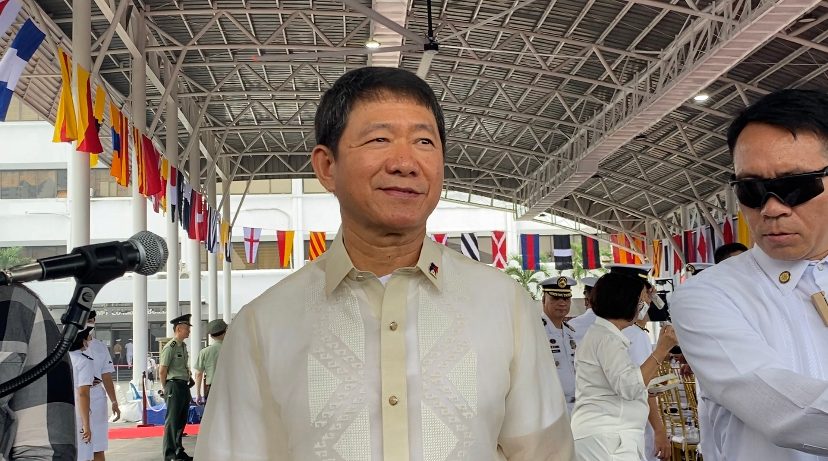
MANILA, Philippines – The Philippines’ top security adviser said on Friday, May 26, that there was nothing provocative about the country’s decision to place navigational buoys within its exclusive economic zone (EEZ)
Describing them as “safety measures,” National Security Adviser Eduardo Año said their placement is based merely on the “international order,” referring to the 2016 ruling of an arbitral tribunal in The Hague, Netherlands, in favor of the Philippines in its historic case against China over the West Philippine Sea.
“It’s a marking, and it bears the Philippine flag because by arbitral ruling, it’s recognized as part of our exclusive economic zone. That’s its purpose,” Año told reporters on the sidelines of the Philippine Navy’s anniversary.
Año, who once served as Philippine military chief, insisted that the Philippines’ actions weren’t “provocations” but mere assertions of its sovereignty.
“Wala tayong provocation dito. Ang sinasabi nating provocation ang mga nagdedangerous maneuver, naglelaser pointing, ‘yung mga nagbablocking sa part ng ating vessels, ‘yung mga naghahabol ng fishermen. We have to put it in the right perspective,” he added.
(This is not a provocation. Provocations consist of dangerous maneuvers, laser-pointing, blocking our vessels, chasing our fishermen.)
Año’s list of what he considered provocations are all actions China has undertaken in the South China Sea, including the West Philippine Sea.
The laser-pointing and dangerous maneuvers that Año made barely-veiled references to, happened in the volatile waters during President Ferdinand Marcos Jr.’s administration.
“Wala tayong nakikitang provocation – malayong-malayo (We do not see provocation in our actions – far from it). We are not the provocateur here. In, fact we are just ensuring that we are following the international rule of law and making sure we are asserting our sovereignty,” said Año, who is also chairperson of the National Task Force for the West Philippine Sea.
Asserting sovereignty
The Philippine Coast Guard (PCG) recently placed navigation buoys in Lawak Island, Likas Island, Parola Island, and Pag-asa Island in the West Philippine Sea.
The buoys, procured from Spain, have remote monitoring systems that allow the transmission of data from the waters to the PCG Headquarters in Manila. The buoys will also signal vessels that the areas where they are installed are considered special protected zones, where mining and oil exploration are prohibited.
The PCG has been at the forefront of Philippine efforts to assert its rights in the contested waters, particularly amid China’s aggressive actions.
“West Philippine Sea” is Manila’s term for the waters in the South China Sea under its exclusive economic zone.
Vietnam, which also claims parts of the Spratly islands in the South China Sea, has also opposed Manila’s decision to place navigation buoys. China, following the Philippines’ placement of buoys, also installed more of their own buoys.
Asked to respond to Beijing’s actions and Hanoi’s statements, Año said Manila is “observing” the situation following the placement of buoys but added that the Philippines “will avoid any principal confrontation.”
“We will not escalate tensions, we will always be abiding to the rule of law,” said the former military general, adding that they are constantly “in consultation” with the foreign affairs department.
Año alsp said the Philippines will push through with existing plans to place even more buoys in its waters.
China ties
China has refused to recognize the 2016 Hague ruling that found China’s activities in Philippine waters – including illegal fishing and island-building – to be illegal. Beijing claims most of the entire South China Sea.
China has also stepped up its aggressive moves in the South China Sea, even as Marcos and Çhinese President Xi Jinping vowed to bring forth a “new golden age” in diplomatic ties.
Marcos, in a clear deviation from his predecessor, has strengthened ties with long-time treaty ally the United States. Washington, in turn, has reaffirmed several times its “iron clad” commitment to defend Manila should it be attacked, including in the South China Sea.
Beijing, meanwhile, has repeatedly expressed concern over Manila and Washington’s growing closeness, especially after the Marcos administration opened up four more bases to American boots under the long-standing Enhanced Defense Cooperation Agreement (EDCA).
Still, Marcos has insisted that his is a policy of “peace” and the “promotion of national interest.”
“We are keenly aware that the national interests are to be pursued in the context of the global order. The seas that stretch before us are not to be seen as boundaries that divide our nations, but they must be seen as channels for mutually beneficial exchanges and collaboration,” the Philippine President told members of the Philippine Navy during its anniversary celebration.
Marcos has promised to continue the push to modernize the Philippine military. Military upgrades include the possible acquisition of a submarine, although Marcos said the priority for now is “developing mostly our anti-submarine capabilities.” – Rappler.com
Add a comment
How does this make you feel?
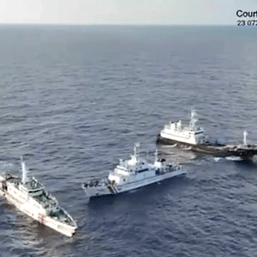
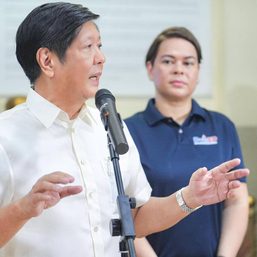
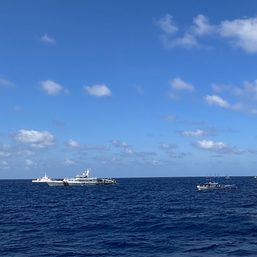
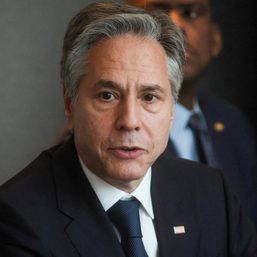
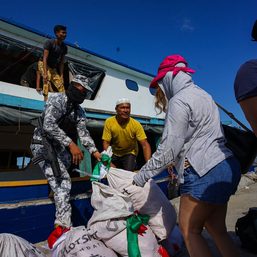

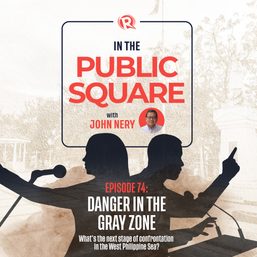
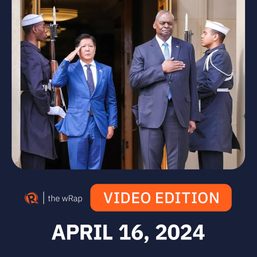
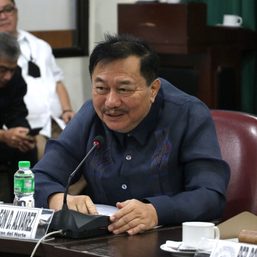
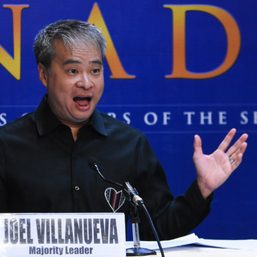
There are no comments yet. Add your comment to start the conversation.